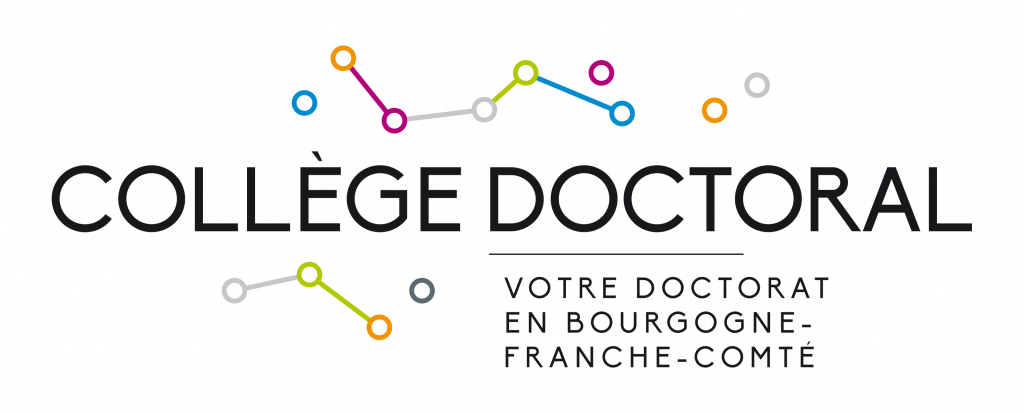
The 2026 edition of the “My thesis in 180 seconds” competition is officially launched !
Ten PhD students will be selected from among all PhD students in Bourgogne-Franche-Comté to participate in the regional final of the competition and try to qualify for the national final by winning the Jury Prize.
Would you like to talk about your research, learn how to communicate it to a lay audience, and test your public speaking skills ? Give it a try !
Trainings in scientific culture diffusion, a human adventure, and encounters with other PhD students await you and will allow you to enjoy a unique experience in your thesis journey.
Interested ? Send your application video by February 13 at noon to doctorat@ubfc.fr !
To learn more:
- View portraits and performances of your predecessors : https://www.youtube.com/@Univ-Marie-et-Louis-Pasteur/search?query=mt180%202025 et https://www.youtube.com/@universitebourgogne-franch9104/search?query=mt180
- Have a look at the national contest website: https://mt180.fr/
- Contact us: doctorat@ubfc.fr
Initiated for the first time in French language by the Association francophone pour le savoir (Acfas) in Quebec in 2012, the “My thesis in 180 seconds” competition was launched in France by the CNRS and the CPU in 2014.
The competition consists in PhD students presenting their thesis subject in three minutes only, while making it attractive and understandable by all. Each PhD student must give a clear, concise, and nonetheless convincing talk about his/her research project, with the support of only one slide! It is a unique opportunity for them to popularise the contents and stakes of their works with the general public, and acquire communication skills well beyond a mere stylistic exercise. PhD students benefit from training courses to meet that challenge, to help them popularise their research and quickly capture attention from an audience.
Each year, the Doctoral College organizes the regional final : 10 PhD students are selected to take part and try to win one out of the two regional prizes : the Audience Award and the Jury Award. The two laureates then represent the Region at the national final, maybe even the international final…!
The 10 PhD students also have the opportunity to make their presentation to high school students in the Region during the session reserved for them each year and at the end of which the Rectorate awards a Prize for high school students to their preferred candidate.
Regional Final 2025
Congratulations to the 10 finalists !
The 2025 edition of the Ma thèse en 180 secondes competition in Bourgogne-Franche-Comté took place on March 20, 2025 at the Théâtre de Montbéliard.
- Aurélie NOMBLOT : doctorante en 4ème année à l’école doctorale Lettres, Communication, Langues, Art (LECLA), à l’Université Marie et Louis Pasteur. Elle prépare sa thèse au sein du Laboratoire CRIT, dans la spécialité Sciences du Langage, mention Traitement Automatique des Langues.
- Léna BILLEREY : doctorante en 3ème année à l’école doctorale Lettres, Communication, Langues, Art (LECLA), à l’Université Bourgogne Europe.
Elle prépare sa thèse au sein du Laboratoire CIMEOS, dans la spécialité Sciences de l’information et de la communication. - Nicolas BROSSEAU : doctorant en 2ème année à l’école doctorale Sciences Physiques pour l’Ingénieur et Microtechniques (SPIM), à SUPMICROTECH. Il prépare sa thèse au sein du laboratoire FEMTO-ST, dans la spécialité Optique et photonique.
- Fanny PELISSON : doctorante en 3ème année à l’école doctorale Sciences Physiques pour l’Ingénieur et Microtechniques (SPIM), à l’Université Marie et Louis Pasteur. Elle prépare sa thèse au sein du laboratoire FEMTO-ST, dans la spécialité Sciences pour l’Ingénieur.
- Melvin PIROLLEY : doctorant en 2ème année à l’école doctorale Sciences Physiques pour l’Ingénieur et Microtechniques (SPIM), à l’Université Marie et Louis Pasteur. Il prépare sa thèse au sein du laboratoire FEMTO-ST, dans la spécialité Informatique.
- Will YONTA : doctorante en 1ère année à l’école doctorale Sciences Physiques pour l’Ingénieur et Microtechniques (SPIM), à l’Université Marie et Louis Pasteur. Elle prépare sa thèse au sein du laboratoire FEMTO-ST, dans la spécialité Mécanique appliquée.
- Guillaume BUIRET : Docteur depuis 2024 de l’école doctorale Environnements-Santé (ES). Il a préparé sa thèse au sein du laboratoire CSGA, dans la spécialité Sciences agronomiques.
- Chloé WIEDMANN : doctorante en 3ème année à l’école doctorale Droit, Gestion, Economie et Politique (DGEP), à l’Université Marie et Louis Pasteur. Elle prépare sa thèse au sein du laboratoire CRJFC, dans la spécialité Droit privé et sciences criminelles.
- Hiba LAKHDAR : doctorante en 1ère année à l’école doctorale Droit, Gestion, Economie et Politique (DGEP), à l’Université Bourgogne Europe. Elle prépare sa thèse au sein du laboratoire CREGO, dans la spécialité Sciences de gestion.
- Anaëlle DENIEUL : doctorante en 3ème année à l’école doctorale Droit, Gestion, Economie et Politique (DGEP), à l’Université Bourgogne Europe. Elle prépare sa thèse au sein du laboraoitre CESAER, dans la spécialité Sciences économiques.
